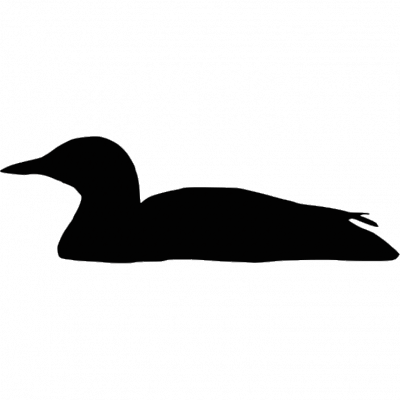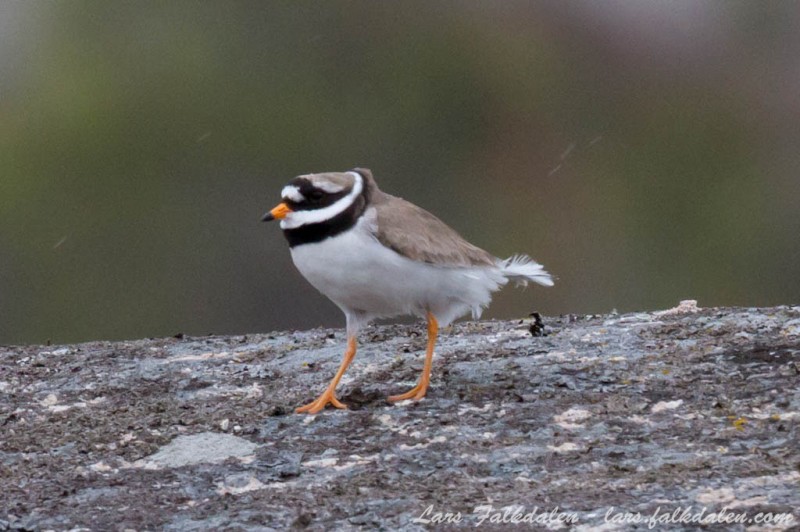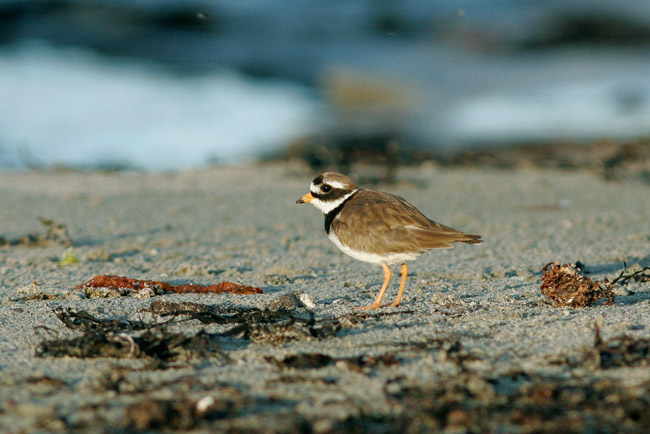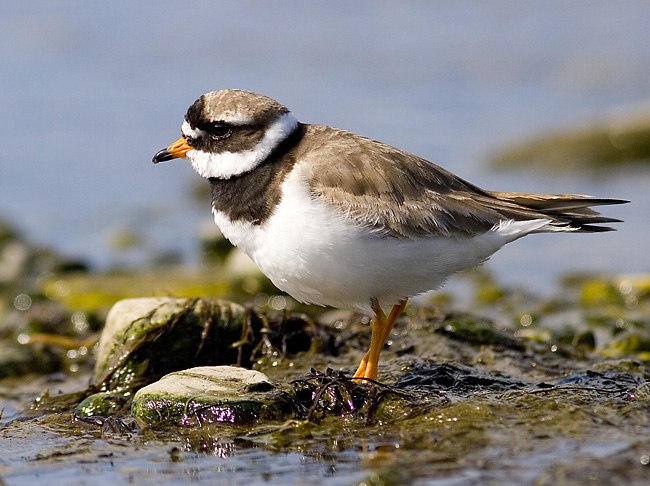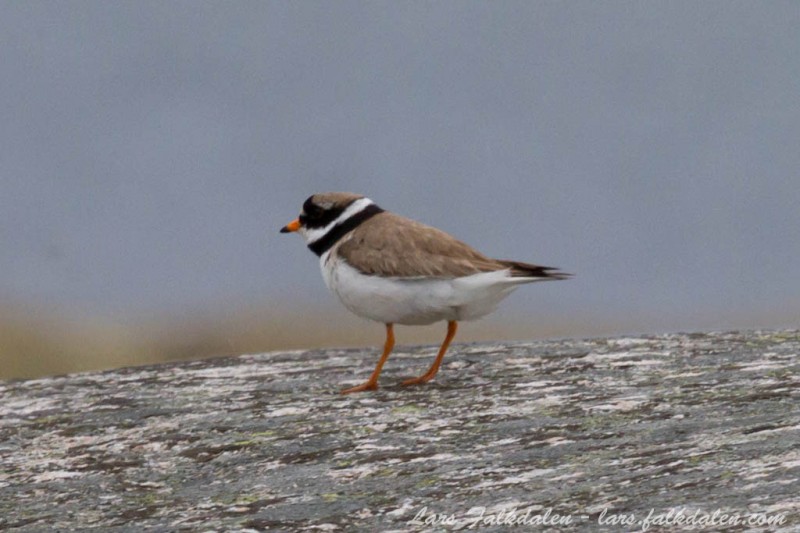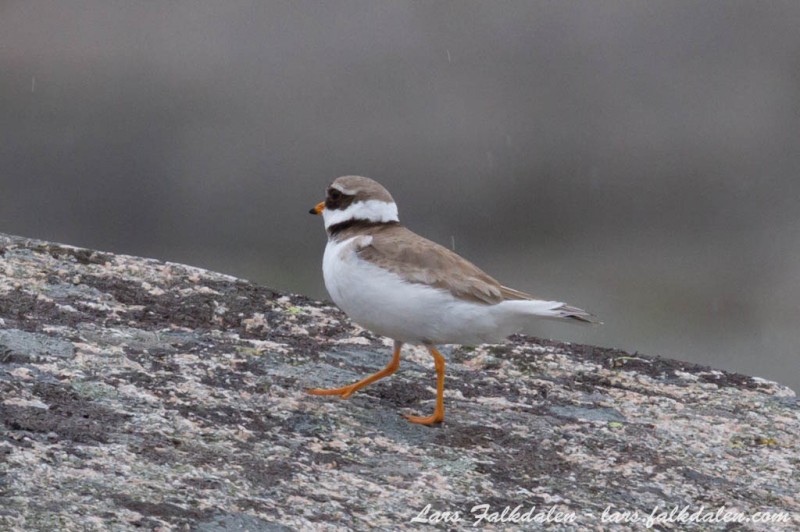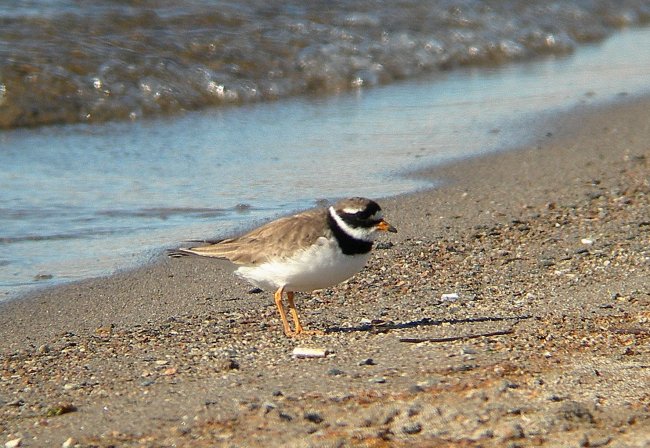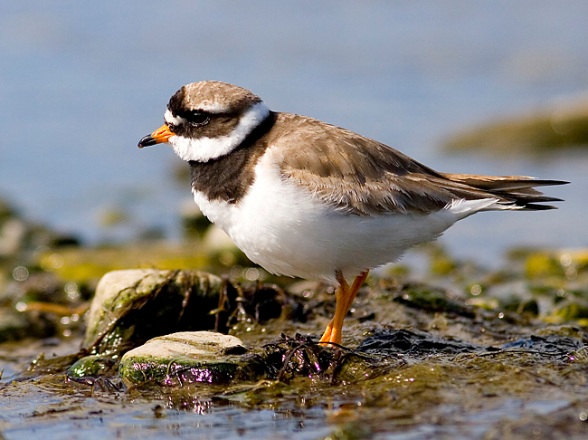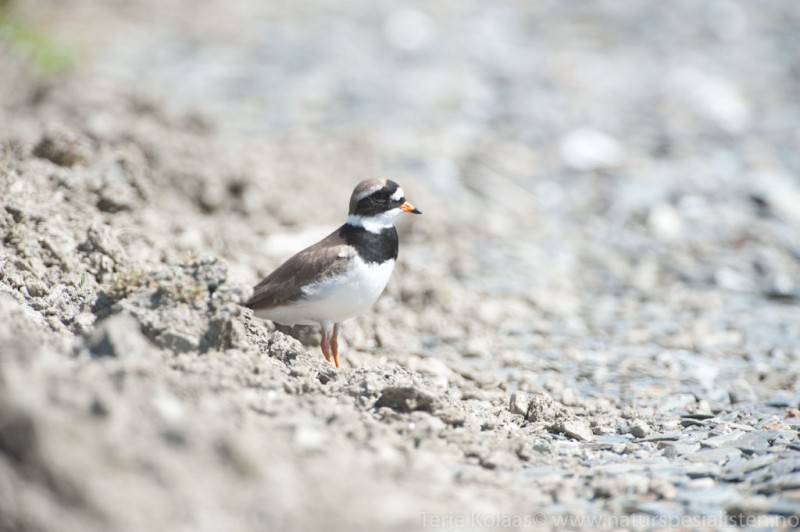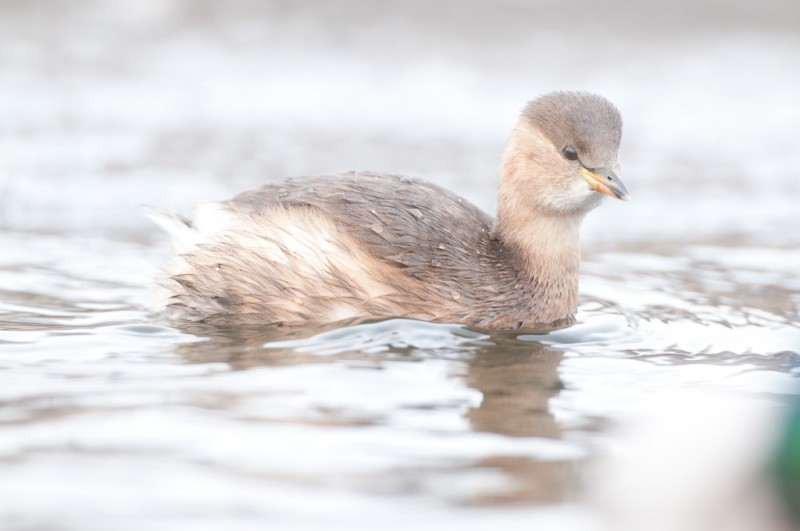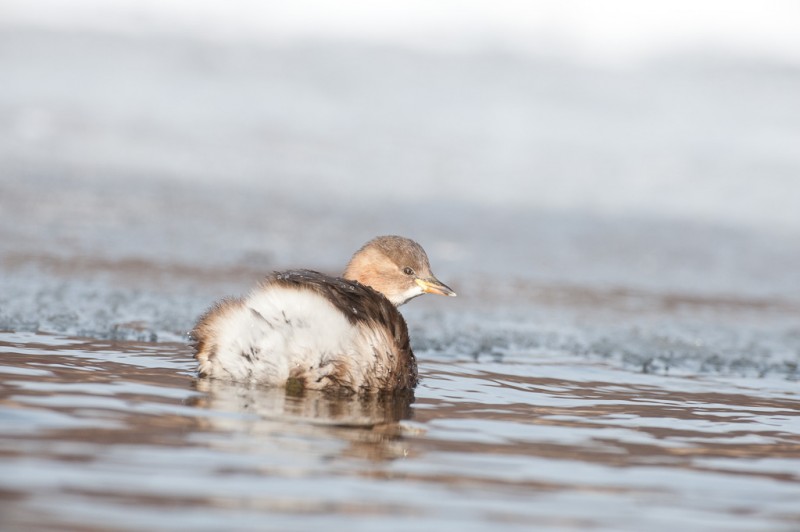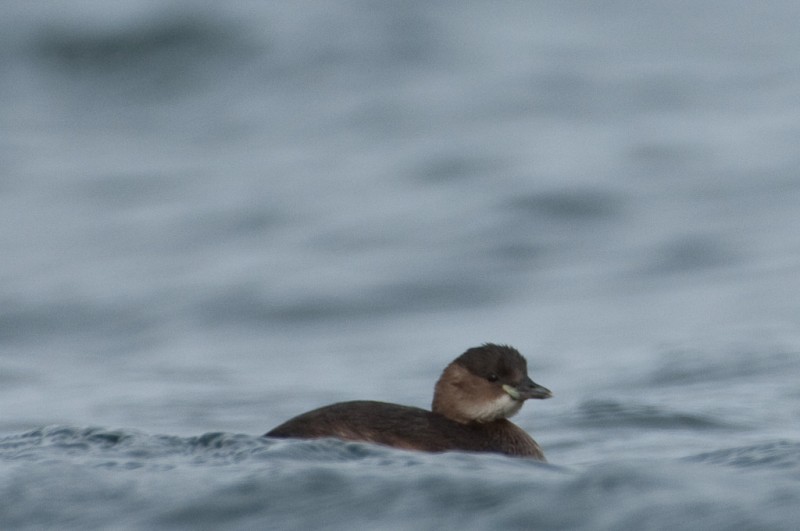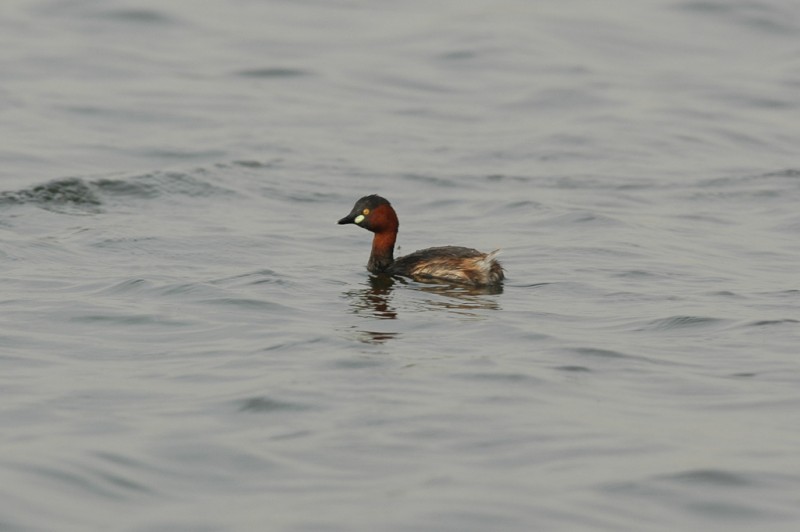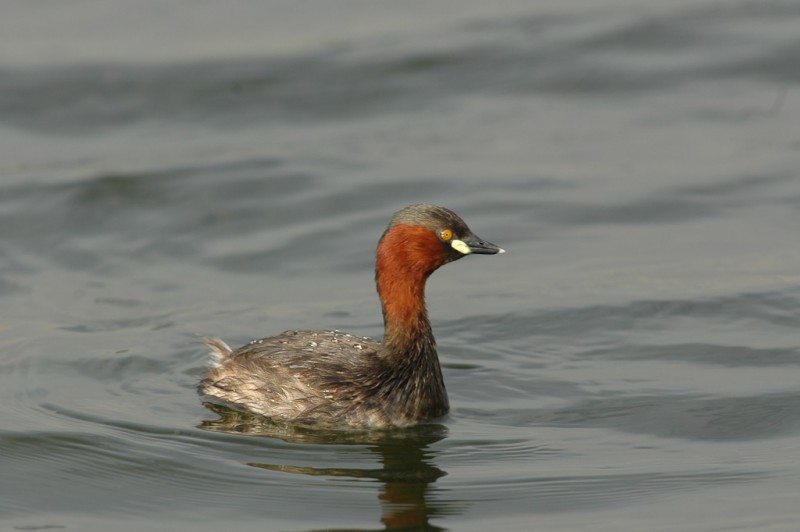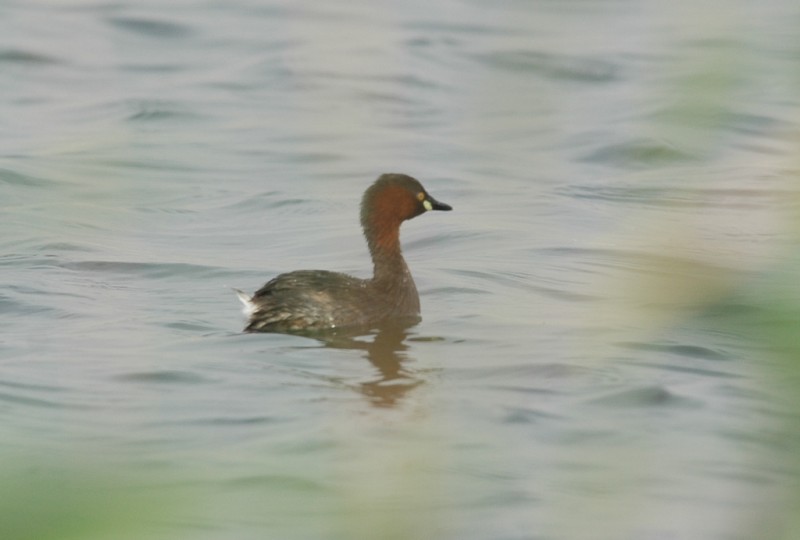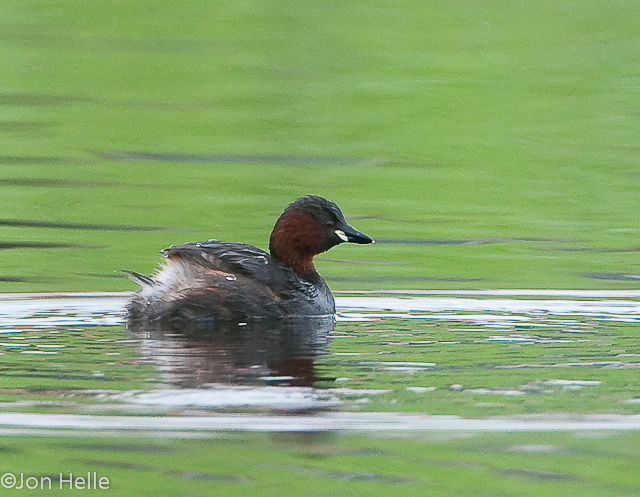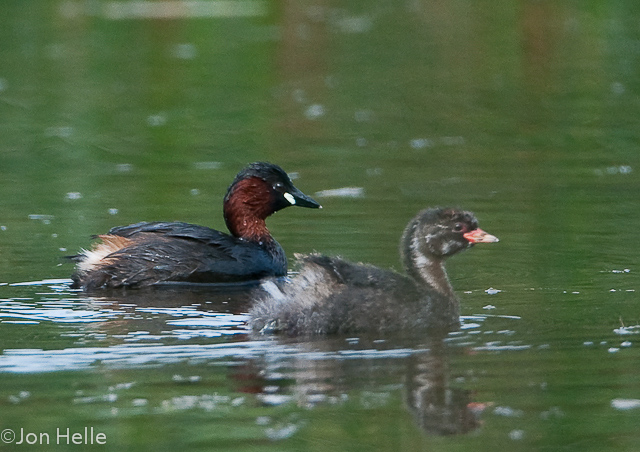Ringed Plover (Charadrius hiaticula)
Little Grebe (Tachybaptus ruficollis)
Marked black breast-band and mask. Olive-brown upperparts and white underparts. Easily confused with Little Ringed Plover (especially juveniles). Diagnostic characters in adults are; striking white wing-bars (only faint in Little Ringed Plover), orange base of bill and legs, and no yellow eye-ring. Juveniles also show characteristic wing-bars, white supercilium extends behind the eye, lower part of "mask" is rounded and bill is stouter. Tertials do not cover tips of primaries.
Sound:Usually heard before seen. Contact call a short, soft "koo-eep", with the emphasised second part higher and rising in pitch. Song a cyclic repetition of the contact call. Sometimes with a shortened phrases and a more creaking timbre.
Flight call:
Distribution:
Wikipedia: map (se also Xeno-canto below)
Ecology:Birdlife ecology
Links:
Observation.org Latest observations
Image search Flickr NB! May give other species
CCSmall, dark grebe with bright yellow gape, short neck and bill. Winter plumage paler than summer, with chestnut flanks, neck and cheeks, giving much less contrast between upper- and underparts than in Slavonian Grebe. Fluffy, pale stern. No crest or tufts/tippets and no white markings on wings.
Sound:Relatively vocal compared to many other grebes. Call; sometimes a single quite clear high pitched "dydlylyyt". More often combined into longer phrases with harsher quality, oscillating like laughter and travelling up and down in pitch in agitated motion. Reminiscent of female Cuckoo.
Display:
Distribution:
Xeno-canto: map
Ecology:Birdlife ecology
Links:
Observation.org Latest observations
Image search Flickr NB! May give other species
CC
 English
English Albanian
Albanian
 Armenian
Armenian
 Bulgarian
Bulgarian
 Catalan
Catalan
 Croatian
Croatian
 Czech
Czech
 Danish
Danish
 Dutch
Dutch
 Finnish
Finnish
 French
French
 Georgian
Georgian
 German
German
 Greek
Greek
 Hungarian
Hungarian
 Italian
Italian
 Latvian
Latvian
 Lithuanian
Lithuanian
 Macedonian
Macedonian
 Norwegian
Norwegian
 Polish
Polish
 Portuguese
Portuguese
 Romanian
Romanian
 Russian
Russian
 Sami : Lule sami
Sami : Lule sami
 Sami : North sami
Sami : North sami
 Sami : South sami
Sami : South sami
 Scientific names
Scientific names
 Serbian
Serbian
 Spanish
Spanish
 Swedish
Swedish
 Ukrainian
Ukrainian

